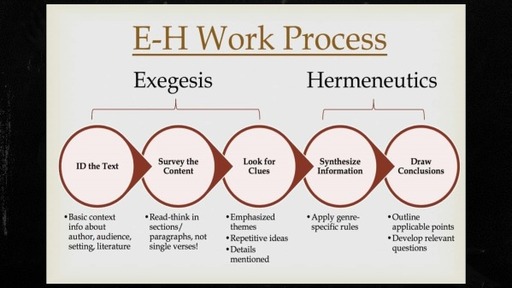What Good!?/Who's Image!?

All Good (v. 28)
Who is included? The verse says “them that love God.” You must realize that this phrase is meant to include all believers. There is no such thing as a Christian who does not love God.
What is promised them? Here it is: “All things work together for good” to these believers. The verb “work together” will be more meaningful to you if you read it in continuing action, as it was no doubt intended: “All things are working together unto good.” All the continuing, daily circumstances and events of a believer’s life are involved here.
The verse is simply telling us that God is in control of the circumstances of a believer’s life, and that He guides all these circumstances so that they work in harmony toward the good God intends for us to experience.
The last part of verse 28 tells us the basis for this truth: God’s purpose for us is, in fact, the “good” that He works all things toward. God’s plan for us lies behind His providential control of the circumstances of our lives.
Here is part of the explanation how God providentially controls all the circumstances of our lives toward the working out of His “good” purpose for us: From our hearts there always come the perfect prayers of the Spirit that are in perfect accord with that will and purpose. God hears Him pray and reckons that prayer ours that His plan will be perfectly worked out in us all the time.
My Way (v. 29)
These verses speak specifically of the good purpose God has for us, presenting that purpose as an ultimate goal toward which our spiritual development is headed. The nature of that goal is indicated, as are the basic steps involved in reaching toward that goal.
For these God set a purpose. To “foreknow” means to know in advance. God foreknows all things perfectly. But His advance knowledge of an event does not cause that event any more than our after knowledge causes the things we know. He knew from before the foundation of the earth who would put faith in Him, and He determined to do certain things for them.
This is the ultimate goal toward which the believer’s spiritual development is headed: conformity to the image of Jesus himself. God’s plan is that the believer develop finally into the likeness of Jesus Christ.
This does not mean that we shall become gods as He is God. But we shall “be like him” when He returns (1 John 3:2) and thus “bear the image of the heavenly [one]” (1 Corinthians 15:49).
What exactly does Paul mean by these words? Is he speaking of spiritual or bodily conformity? Both! We will partake of His holy character and of the kind of glorified body He possesses. Both sides are essential to the full “manifestation of the sons of God” already spoken of in verse 19.
The Bible never speaks of man’s faith or rejection of God in any terms except those that speak clearly of man’s freedom to choose and responsibility for his choice.
“Predestinated” is not all that special a word, anyway. All it means is foreordained, preplanned. The verse is telling us that God’s plan for the believer is not a new thing or an accident.
Before man was ever made God foresaw that sin would come. He also foresaw that some would put their faith in Him for redemption from that sin. In eternity, He made His plan and settled His purpose for those who would believe. He determined even then to bring the believers to a final glorification in which they would be conformed to the image of His Son.
“that he [Jesus] might be the first born among many brethren.” In other words, God has planned to bring all true, persevering believers into conformity to the image of His one Son so that that Son would have many brethren to share with Him the position of perfect sonship to the Father.
